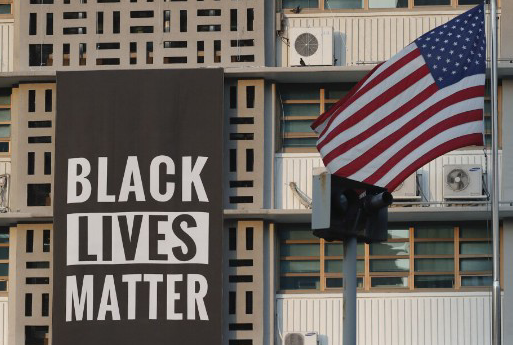
You might have seen some of the recent headlines about how Black Lives Matter has spent its money.
Back in October 2020, for example, leaders of the Black Lives Matter Global Network Foundation bought a $6 million mansion in Southern California.
As Indiana’s attorney general, I wouldn’t necessarily make such events my business.
But I do make it my business when charitable donors here in my state get scammed. A big part of my job is protecting Hoosier consumers, and I take that responsibility very seriously.
So, on April 26, I filed a lawsuit against BLM, but only after it steadfastly refused to respond to a civil investigative demand that we issued back in February.
We need to know whether BLM is fulfilling its basic obligations as a nonprofit charitable organization.
In a 2020 report, BLM stated it raised over $90 million in 2020 while distributing approximately $21.7 million to 30 local organizations and affiliated chapters, including an affiliated chapter in South Bend, Indiana. However, an IRS filing by BLM for the first half of 2020 listed the organization as having zero revenue, expenses, and/or assets.
This organization also appears to have failed to follow such standard practices as filing annual reports and documenting how its funds have been spent.
So, we’re investigating whether BLM has violated either the Indiana Deceptive Consumer Sales Act or the Indiana Nonprofit Corporation Act. The reason we issued a civil investigative demand in the first place was to obtain information and documents held by BLM that were relevant to our investigation.
This situation reminds me of another event from a few years ago, when a band of con artists bilked more than $187 million from donors by claiming to represent charities helping cancer patients.
Eventually, those fraudsters entered into an agreement with the states, and the federal government settled allegations against them. Part of their scheme, though, was to start up organizations with very altruistic names — Cancer Fund of America, Cancer Support Services, Children’s Cancer Fund of America, and The Breast Cancer Society.
With names like that, what decent person wouldn’t want to contribute? But those organizations amounted to a get-rich-quick racket with little connection to actual cancer patients.
Which brings us back to Black Lives Matter.
Obviously, we all should believe the words of that slogan — because all lives matter. And just as all decent people want to stop cancer, so do all decent people want to stop any racial discrimination and promote equal opportunity for all people.
But is this fight truly the focus of BLM?
BLM co-founder Patrisse Cullors has described herself and fellow co-founder Alicia Garza as “trained Marxists.” And at one point, BLM vowed to “disrupt the Western-prescribed nuclear family structure requirement” — i.e., the idea that a child is best nurtured in a home featuring a mother and father.
Such ideas ignore America’s exceptionalism: the fact that we are unique to world history. At our founding, the best ideas for self-government came together at the same time and in the same place. Unique, indeed. And thank God for such an event. This kind of government unleashed the greatest innovation, prosperity, and upward mobility that human history ever witnessed.
There is no question that serious racial problems have been a part of our nation’s history. In fact, every nation significant to world history built itself up in some degree, wrongly, on the backs of slaves. This should not be forgotten. But it should be put into context, including that our way of self-government accelerated the abolition of slavery in America. Our children should be taught to love their country, not falsely condemn it.
Again, though, our investigation into BLM does not pertain to ideology. My office already concluded that BLM is a political organization in a legal advisory opinion last year.
Rather, our investigation pertains to expectations of ethical, financial, and legal propriety on which all honest and law-abiding people can agree.
The expectation that BLM should operate in an aboveboard manner is hardly a partisan issue. In fact, California Attorney General Rob Bonta, a liberal Democrat of the sort typically endorsed and celebrated by BLM, sent the organization a letter earlier this year warning it that it could face penalties, late fees, and the revocation of its registered status as a charitable trust if it did not comply with statutory requirements.
Regardless of your political stance, the integrity of the system and the individuals running nonprofit groups matter. Nonprofit groups serve an important role in society in addressing matters of public concern, theoretically filling gaps that otherwise might require direct government assistance. For that, they receive certain benefits, chief among them not having to pay certain taxes.
Here in Indiana, we have a long history of nonprofit groups doing valuable work. But we always want to make sure that generous Hoosiers can know that the money they donate goes to the actual causes they intend to support.
For now, we suggest that those who believe that black lives matter consider donating to organizations other than the Black Lives Matter Global Network Foundation
And here in Indiana, we continue to encourage any Hoosier donors who believe they have been scammed to file a consumer complaint with my office at www.indianaconsumer.com .
* story by The Washington Examiner